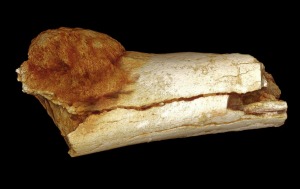The ASCO, the SSO, and the ASTRO have come together and issued a joint guideline on what constitutes a successful surgery for ductal carcinoma in situ (DCIS) in terms of having cancer-free margins on the removed tissue. Chief of Breast Service at MSK, Dr. Monica Morrow was the lead author on this meta-analysis of over 20 studies involving almost 8,000 patients. They concluded that a 2mm margin should be adequate for breast conserving surgery and is associated with low rates of ipsilateral tumor recurrence.
A recent JAMA Oncology report showed that mutations in estrogen receptors impacted the progression-free survival of breast cancer patients. Dr. Sarat Chandarlapaty and his colleagues used cDNA assays to identify two mutations: D538G and Y5378. For women with these mutations who were treated with Aromatase inhibitors, their progression-free survival rates were the similar to the women with neither mutation. “While this study hasn’t found a “cure” for breast cancer, it suggests a new means of providing a longer life for women with ER+ tumors — even if metastasis has occurred.”
A new study in the Journal of Hepatology by Dr Ghassan Abou-Alfa found that Codrituzumab was not effective for patients who had already failed treatment for hepatocellular carcinoma. However, higher doses of Codrituzumab or selecting patients with higher CD16 and glypican-3 levels could improve patient outcomes.
